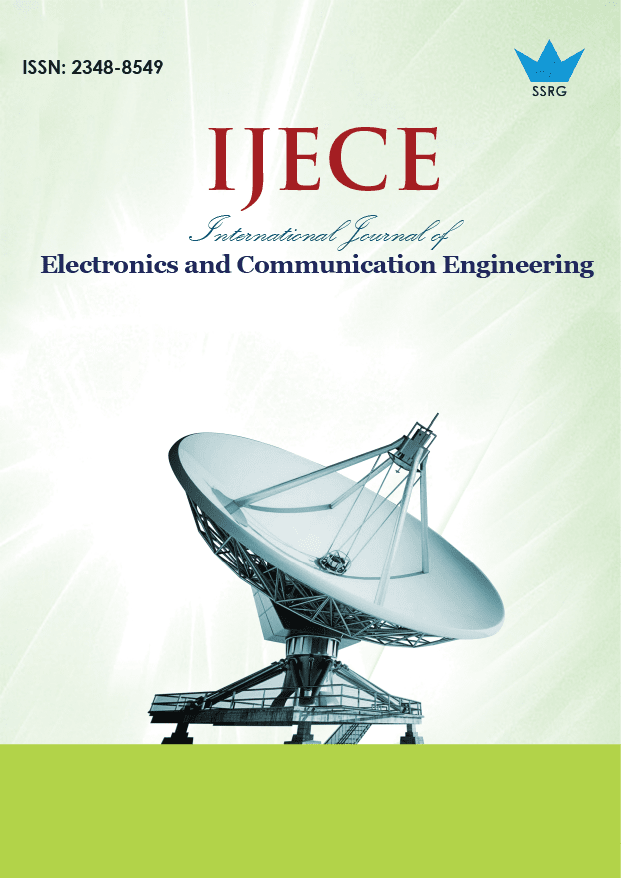Design and Performance Analysis of Bi-Directional DC-DC Buck/Boost Converter for Energy Storage Systems Using Advanced Control Strategies

| International Journal of Electronics and Communication Engineering |
| © 2024 by SSRG - IJECE Journal |
| Volume 11 Issue 3 |
| Year of Publication : 2024 |
| Authors : E. Kalaiyarasan, S. Singaravelu |
How to Cite?
E. Kalaiyarasan, S. Singaravelu, "Design and Performance Analysis of Bi-Directional DC-DC Buck/Boost Converter for Energy Storage Systems Using Advanced Control Strategies," SSRG International Journal of Electronics and Communication Engineering, vol. 11, no. 3, pp. 53-62, 2024. Crossref, https://doi.org/10.14445/23488549/IJECE-V11I3P106
Abstract:
The growing demand for efficient and reliable energy storage systems has led to increased research and development in the field of advanced control strategies. This research evaluates and compares the effectiveness of advanced control strategies such as Proportional and Integral controller (PI), Artificial Neural Network (ANN) and Adaptive Neuro-Fuzzy Inference System (ANFIS) for energy storage systems employing a DC-DC bi-directional converter. ANFIS control combines the strengths of fuzzy logic and neural networks to provide a hybrid approach, particularly appealing for its adaptability and capacity to handle complex and uncertain operational environments. Energy storage systems have emerged as vital components in modern energy management, and they play a pivotal role in addressing renewable energy intermittency, enhancing grid stability, and efficiently managing energy demands. At the heart of these systems lies the DC-DC bi-directional buck/boost converter, which plays a critical component in enabling bidirectional energy transfer between the storage system (lead acid battery) and the DC source. This research employs a simulation-based methodology for a comprehensive evaluation and comparison of these control strategies. The aim is to provide valuable insights into the accuracy, stability, control complexity and suitability of various control approaches in optimizing the operation of such systems.
Keywords:
Energy Storage Systems, PI, DC-DC Bi-directional converter, Control strategies, Efficiency, Stability, Robustness, Simulation, Artificial Neural Network, Adaptive Neuro-Fuzzy Inference System.
References:
[1] Krishna Kumar Pandey et al., “Bidirectional DC-DC Buck-Boost Converter for Battery Energy Storage System and PV Panel,” Modeling, Simulation and Optimization, pp. 681-693, 2021.
[CrossRef] [Google Scholar] [Publisher Link]
[2] Hyeon-Seok Lee, and Jae-Jung Yun, “High-Efficiency Bidirectional Buck-Boost Converter for Photovoltaic and Energy Storage Systems in a Smart Grid,” IEEE Transactions on Power Electronics, vol. 34, no. 5, pp. 4316-4328, 2019.
[CrossRef] [Google Scholar] [Publisher Link]
[3] Atul Agarwal et al., “Sliding Mode Control of a Bidirectional DC/DC Converter with Constant Power Load,” 2015 IEEE First International Conference on DC Microgrids (ICDCM), Atlanta, USA, pp. 287-292, 2015.
[CrossRef] [Google Scholar] [Publisher Link]
[4] Gergana Vacheva, Vladimir Dimitrov, and Nikolay Hinov, “Modelling and Control of Bidirectional Buck-Boost Converter for Electric Vehicles Applications,” 2019 16th Conference on Electrical Machines, Drives and Power Systems (ELMA), Varna, Bulgaria, pp. 1-4, 2019.
[CrossRef] [Google Scholar] [Publisher Link]
[5] Zhe Zhang et al., “Analysis and Design of a Bidirectional Isolated DC-DC Converter for Fuel Cells and Supercapacitors Hybrid System,” IEEE Transactions on Power Electronics, vol. 27, no. 2, pp. 848-859, 2012.
[CrossRef] [Google Scholar] [Publisher Link]
[6] Gottapu Lithesh, Bekkam Krishna, and V. Karthikeyan, “Review and Comparative Study of Bi-Directional DC-DC Converters,” 2021 IEEE International Power and Renewable Energy Conference (IPRECON), Kollam, India, pp. 1-6, 2021.
[CrossRef] [Google Scholar] [Publisher Link]
[7] Hoai-An Trinh et al., “Robust Adaptive Control Strategy for a Bidirectional DC-DC Converter Based on Extremum Seeking and Sliding Mode Control,” Sensors, vol. 23, no. 1, pp. 1-24, 2023.
[CrossRef] [Google Scholar] [Publisher Link]
[8] Ayman Al Zawaideh, and Igor M. Boiko, “Analysis of Stability and Performance of a Cascaded PI Sliding-Mode Control DC-DC Boost Converter via LPRS,” IEEE Transactions on Power Electronics, vol. 37, no. 9, pp. 10455-10465, 2022.
[CrossRef] [Google Scholar] [Publisher Link]
[9] Dominic Savio Abraham et al., “Fuzzy-Based Efficient Control of DC Microgrid Configuration for PV-Energized EV Charging Station,” Energies, vol. 16, no. 6, pp. 1-17, 2023.
[CrossRef] [Google Scholar] [Publisher Link]
[10] Yousef Allahvirdizadeh et al., “A Comparative Study of PI, Fuzzy‐PI, and Sliding Mode Control Strategy for Battery Bank SOC Control in a Standalone Hybrid Renewable System,” International Transactions on Electrical Energy Systems, vol. 30, no. 2, 2020.
[CrossRef] [Google Scholar] [Publisher Link]
[11] N. Ab. Wahab et al., “Artificial Neural Network-Based Technique for Energy Management Prediction,” Indonesian Journal of Electrical Engineering and Computer Science, vol. 17, no. 1, pp. 94-101, 2020.
[CrossRef] [Google Scholar] [Publisher Link]
[12] Muhammad Zeshan Afzal et al., “A Novel Electric Vehicle Battery Management System Using an Artificial Neural Network-Based Adaptive Droop Control Theory,” International Journal of Energy Research, vol. 2023, pp. 1-15, 2023.
[CrossRef] [Google Scholar] [Publisher Link]
[13] Femina Mohammed Shakeel, and Om P. Malik, “ANFIS Based Energy Management System for V2G Integrated Micro-Grids,” Electric Power Components and Systems, vol. 50, no. 11-12, pp. 584-599, 2022.
[CrossRef] [Google Scholar] [Publisher Link]
[14] S. Subha, and S. Nagalakshmi, “Design of ANFIS Controller for Intelligent Energy Management in Smart Grid Applications,” Journal of Ambient Intelligence and Humanized Computing, vol. 12, pp. 6117-6127, 2021.
[CrossRef] [Google Scholar] [Publisher Link]
[15] E.M.G. Rodrigues et al., “Comparison of Battery Models for Energy Storage Applications on Insular Grids,” 2015 Australasian Universities Power Engineering Conference (AUPEC), Wollongong, Australia, pp. 1-6, 2015.
[CrossRef] [Google Scholar] [Publisher Link]
[16] Remon Das, and Md. Ashraf UddinChowdhury, “PI Controlled Bi-Directional DC-DC Converter (BDDDC) and Highly Efficient Boost Converter for Electric Vehicles,” 2016 3rd International Conference on Electrical Engineering and Information Communication Technology (ICEEICT), Dhaka, Bangladesh, pp. 1-5, 2016.
[CrossRef] [Google Scholar] [Publisher Link]

 10.14445/23488549/IJECE-V11I3P106
10.14445/23488549/IJECE-V11I3P106